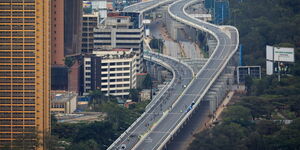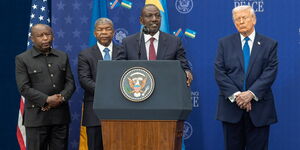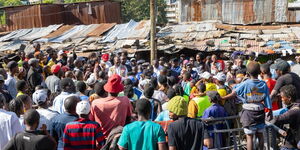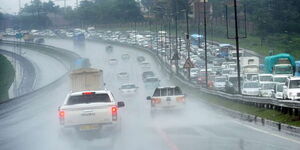The United States government in its 2024 National Trade Estimates Report on foreign trade barriers complained that Kenya had negated an earlier deal to import bovine semen from the US.
Bovine is regarded as a superior cattle species which is popular in the United States.
In the report prepared by the Office of the United States Trade Representative (USTR), it was highlighted that negating the deal had restricted market access for that particular cattle breed.
It was revealed that Kenya’s Office of the Director of Veterinary Services (DVS) in 2020 signed an agreement with the US Department of Agriculture Animal and Plant Health Inspection Service to start importation of the breed to Kenya.
At the time, Kenya’s Ministry of Agriculture signed veterinary requirements and certificate attestation for the importation of bovine embryos from the United States.
“In May 2020, however, the DVS proposed additional requirements that went beyond those previously agreed by the two agencies,” the US complained.
“Kenya imposes standards that are overly restrictive for bovine semen imports, precluding actual market access for most U.S. bovine semen for dairy cattle.”
USTR reckons that the change of tune by Kenya has left the largest share of the market to domestic producers who do not meet the same criteria.
President Joe Biden’s administration revealed that technical work was ongoing to ensure that the stalemate was resolved.
In documents seen by Kenyans.co.ke, the Ministry of Agriculture imposes over 10 requirements on US companies before they can export bull semen to Kenya.
Some of the requirements include; proof that the semen does not contain the following diseases; Lumpy Skin Disease (LSD), Enzootic Bovine Leucosis (EBL), Rift Valley Fever (RVF), Foot and Mouth Disease, Brucellosis, Infectious Bovine Rhinotracheitis/ Infectious Pustular Vulvovaginitis (IBR/IPV), Tuberculosis, Leptospirosis, Bovine genital campylobacteriosis, and Blue tongue.
“The bull(s) must have been continuously resident at the Artificial Insemination Center for a period of at least 28 days prior to collection of the semen and in that time had not been used for natural mating,” the Ministry of Agriculture further adds.
Additionally, the donor bulls must be free from heritable genetic defects and have confirmed the absence of haplotypes affecting fertility.












